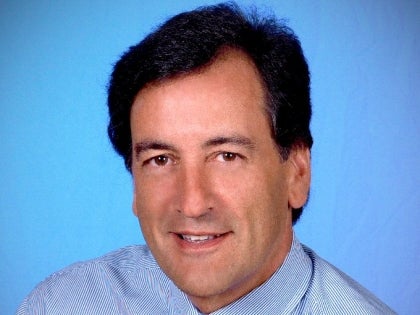
Newsday: No Ignition in Drunken Condition
By Sid Cassese & Will Van Sant
July 26, 2010
Nassau and Suffolk counties next month will begin enforcing what may be the toughest drunken driving measure in state history: People convicted of driving while intoxicated, even first-time offenders, will have devices installed on their vehicles to prevent them from driving after drinking.
New York will become the 10th state to make such devices mandatory after a first offense when the provision takes effect Aug. 15.
The law will apply to the roughly 25,000 people convicted of criminal drunken driving each year in New York State, more than 5,000 of them Long Islanders. And while convicted drivers will pay the monthly lease for the devices, the law also represents a management challenge for the two counties, which must handle the cost of monitoring compliance.
Nassau has welcomed the measure and has sought grant money to pay for the effort. In Suffolk, officials said they didn't know how they will pay for the new requirement and complained the state was slapping a financial burden on counties.
"State legislators took the bows by implementing a new program, yet leave it to the locals to pick up the tab," said Suffolk County Executive Steve Levy. "At the same time, the state is . . . cutting their money to our probation department . . . so it's a double whammy." Probation departments will be key to implementing the law.
But Nassau County Executive Edward Mangano, who supports the program, said, "People need to understand there are serious consequences to drinking and driving."
Breath test before car will start
Under the legislation, an ignition interlock must be installed on vehicles used by convicted drunken drivers, who will have to blow into the device's alcohol detection tube before the car will start. How long the device stays connected will depend on a judge's ruling, but it will last a minimum of six months for a misdemeanor, and a year for a felony conviction. The new requirement stems from Leandra's Law, passed last fall after Leandra Rosado, 11, was killed in Manhattan by an alleged drunken driver.
If the device registers a blood-alcohol concentration in excess of 0.025, the car won't start. A concentration of 0.050 to 0.079 is impaired driving under New York law, generally only a violation. A concentration of 0.08 or above is a crime, either a misdemeanor or a felony, depending on other factors such as whether there is a child in the car.
The law requires convicted drivers to pay around $90 a month to lease the installed device from private vendors, but counties will have to pay to track compliance through data the systems provide. The devices can help answer questions such as: Have drivers attempted to start their cars drunk? Tampered with the device? Have they reduced use of the vehicle, perhaps to use another that is not equipped with a device? And in the case of Nassau and Suffolk, which plan to use devices with a built-in GPS, there will be location data to monitor.
Anticipating grant money
Robert Maccarone, the state's director of probation, said that in late September or early October, he will know whether $3 million in grant money from Gov. David A. Paterson's Traffic Safety Committee will be made available to help counties get started.
Mangano said he expects the grant money to cover the estimated $43,385 cost of the program for 2010 and the $154,710 cost for 2011. Other avenues are being pursued to keep the effort going after grant money runs out, according to Nassau District Attorney Kathleen Rice.
In Suffolk, Probation Director John Desmond said the county is requesting bids from private companies interested in monitoring device data.
"We've been informed by the state that they may have some money to help pay for this program," Desmond said, "but we haven't gotten any hard and fast information."
Leandra's Law is largely a Long Island product. State Sen. Charles Fuschillo (R-Merrick), a longtime anti-DWI advocate, was a sponsor. Harvey Weisenberg (D-Long Beach), sponsored it in the Assembly. Fuschillo said interlock devices will ultimately save money by reducing drunken driving.
"I would hope that County Executive Levy, like other executives in the state, would firmly embrace this law that saves lives," Fuschillo said.
Maccarone, the state probation director, said the devices change behavior because they are invasive and that they've proven effective in the nine other states with similar laws. After New Mexico began using the devices, he said, DWI recidivism fell 37 percent.
How the system works
The Interceptor Ignition Interlocks system is one of several devices - some more restrictive than others - that will be used across New York to comply with the new law. Interceptor will be used for the most serious driving while intoxicated offenses in Nassau County. Suffolk County may use the Interceptor, but no final decision has been made.
Here's how it works:
- Driver turns ignition.
- Within 20 seconds a voice prompts: "Please provide a sample."
- Driver breathes into the device for 6 seconds.
- If the blood-alcohol content is greater than 0.025, the car won't start.
- If the breath sample is accepted, a voice says, "You may start the vehicle."
- While driving, the system will prompt the driver to retest, to determine whether the driver is drinking while operating the vehicle. If the BAC exceeds 0.025 on the retest, a voice will prompt the driver to pull over. If the driver fails to do so, the car's horn will sound and its lights flash until the driver turns off the car. Its position is then relayed to the driver's probation officer via global positioning.
- Drivers must report regularly to the device vendor, who will check the equipment's integrity.
The company downloads the information and sends it to the probation department, which in turn notifies the court and district attorney of any reportable violations.
- The convicted driver will pay about $90 a month, plus tax, for each installed device, said Interceptor president John Ruocco, and a judge could order it on each car in the driver's household. Other expenses, such as monitoring the drivers in the program, will be borne by the county. Some state grants may be available through 2011.
SOURCE: NASSAU COUNTY PROBATION DEPARTMENT AND INTERCEPTOR IGNITION INTERLOCKS OFFICIALS.
Leandra's Law
State lawmakers approved Leandra's Law in November. It made conviction of drunken or drugged driving with a child 15 or younger in a car or truck a felony; it is already in effect.
A second part of the law, which goes in to effect Aug. 15, mandates that convicted drunken drivers have an ignition interlock device installed in their vehicles. The driver's license is stamped "Interlock Only," and driving without the device is subject to up to a year in jail.
